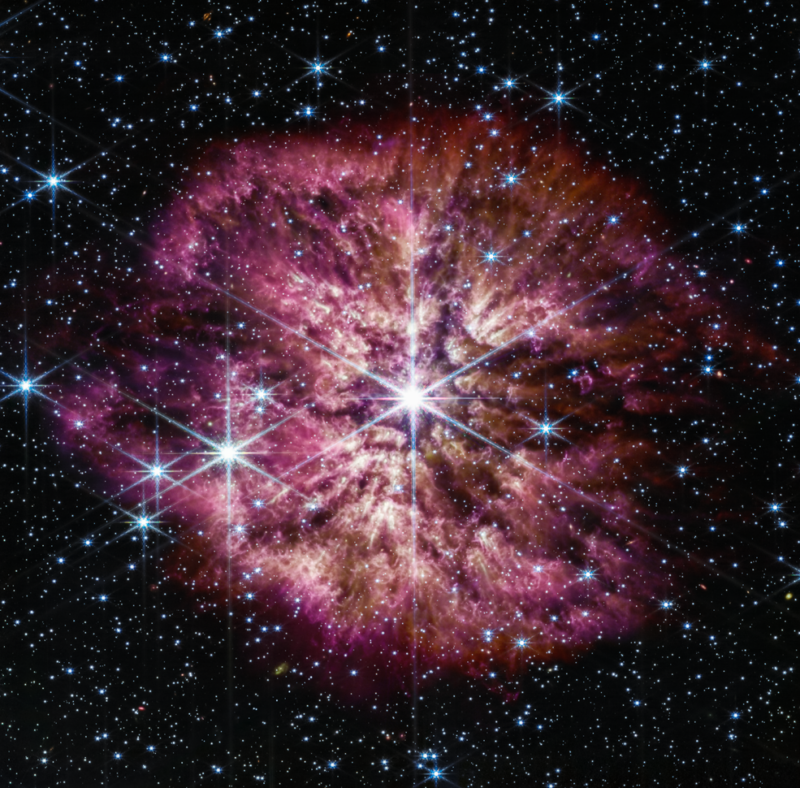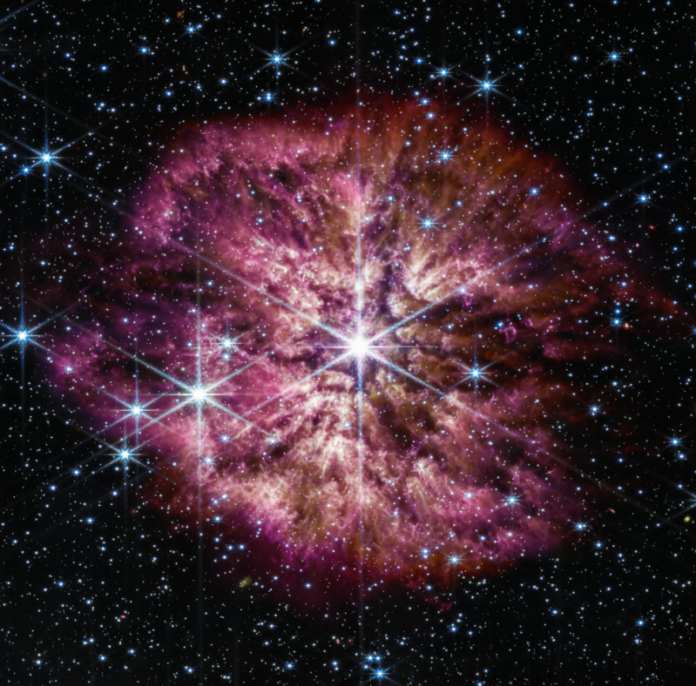
Enlarge / Helium-rich Wolf-Rayet stars generally form by the ejection of hydrogen and other materials. (credit: NASA, ESA, CSA, STScI, Webb ERO Production Team)
Magnetars are some of the most extreme objects we know about, with magnetic fields so strong that chemistry becomes impossible in their vicinity. They're neutron stars with a superfluid interior that includes charged particles, so it's easy to understand how a magnetic dynamo is maintained to support that magnetic field. But it's a little harder to fully understand what starts the dynamo off in the first place.
The leading idea, which benefits from its simplicity, is that the magnetar inherits its magnetic field from the star that exploded in a supernova to create it. The original magnetic field, when crushed down to match the tiny size of the resulting neutron star, would provide a massive kick to start the magnetar off. There's just one problem with this idea: we haven't spotted any of the highly magnetized precursor stars that this hypothesis requires.
It turns out that we have been observing one for years. It just looked like something completely different, and it took a more careful analysis, published today in Science, to understand what we've been observing.
Read 13 remaining paragraphs | Comments
Ars Technica - All contentContinue reading/original-link]




